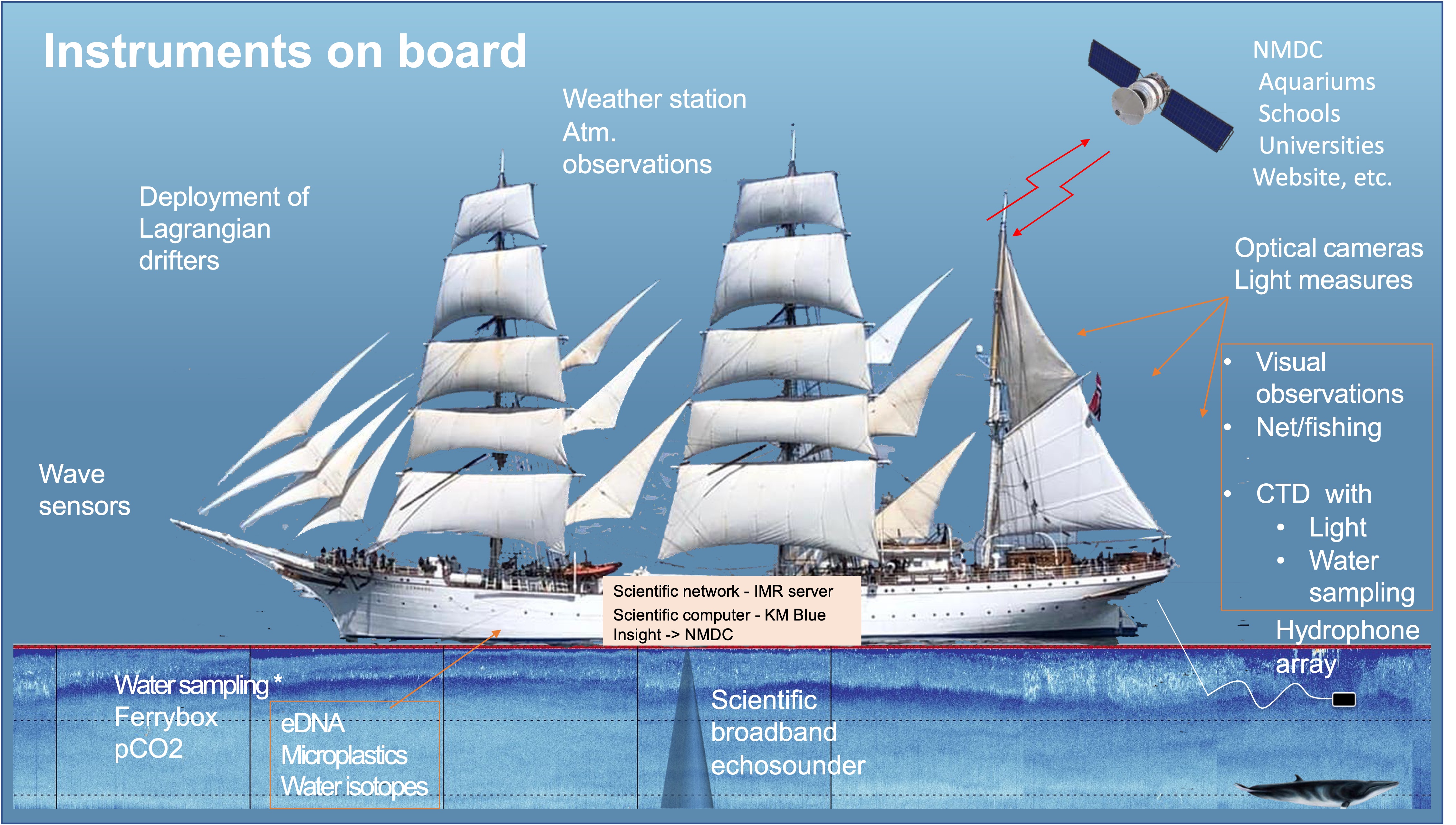Work onboard will take place in study teams, where you will have informal lectures and work on group projects, arranged around your watch. In the day there will be alternating presentations between expert lectures and group presentations. The at-sea course will take place on the full sailing days, so from 4-12th January. The day of departure and arrival, all hands will be needed on deck to prepare the ship for sailing and arrival into port.

Study teams
On board, students will work in study teams of 8-10 people, clustered around topics of interest. The intention is that your project group is all on the same watch, to enable you to work together on your projects. The current plan is that there will be three main topics, which will be split into two groups each:
-
Air-sea interaction, upper ocean dynamics and mesoscale variability (including wind and waves, wave-current interaction (and CO2 exchange)
-
Upper layer marine biology (including biogeochemistry, marine habitat, fish, plankton, pollutant material, etc)
-
Climate change (including transport of heat and the polar seas)
The teams will be tasked with regular monitoring and analysis of data in regards to their topic. This will include daily collection of satellite, in-situ and model data that each group will then analyse in relation to their own topic.
Instruments on board

Although the Statsraad Lehmkuhl is not a dedicated research ship, it has been fitted with a number of instruments to enable the researchers on board to explore the seas it sails through. Measurements while on passage include: sea surface temperature, pCO2, fluorescence, turbidity, oxygen, salinity, waves, meteorological variables, CTD casts, and net sampling amongst others. These measurements allow fundamental upper ocean features to be monitored and linked to satellite data, such as crossing of meandering ocean frontal systems, internal waves and mesoscale eddies.
Data collected from the ship is being made available online through the NMDC (search for One Ocean).
Work to be delivered
Each study team will be asked to make some presentations of their daily findings on the ship and are also tasked with the delivery of a group report of their overall analyses and findings. The delivery of these reports are mandatory to be granted the Joint Statsraad Lehmkuhl, Nansen Center and ESA Training Course Diploma and shall be received no later than by end of March 2023.